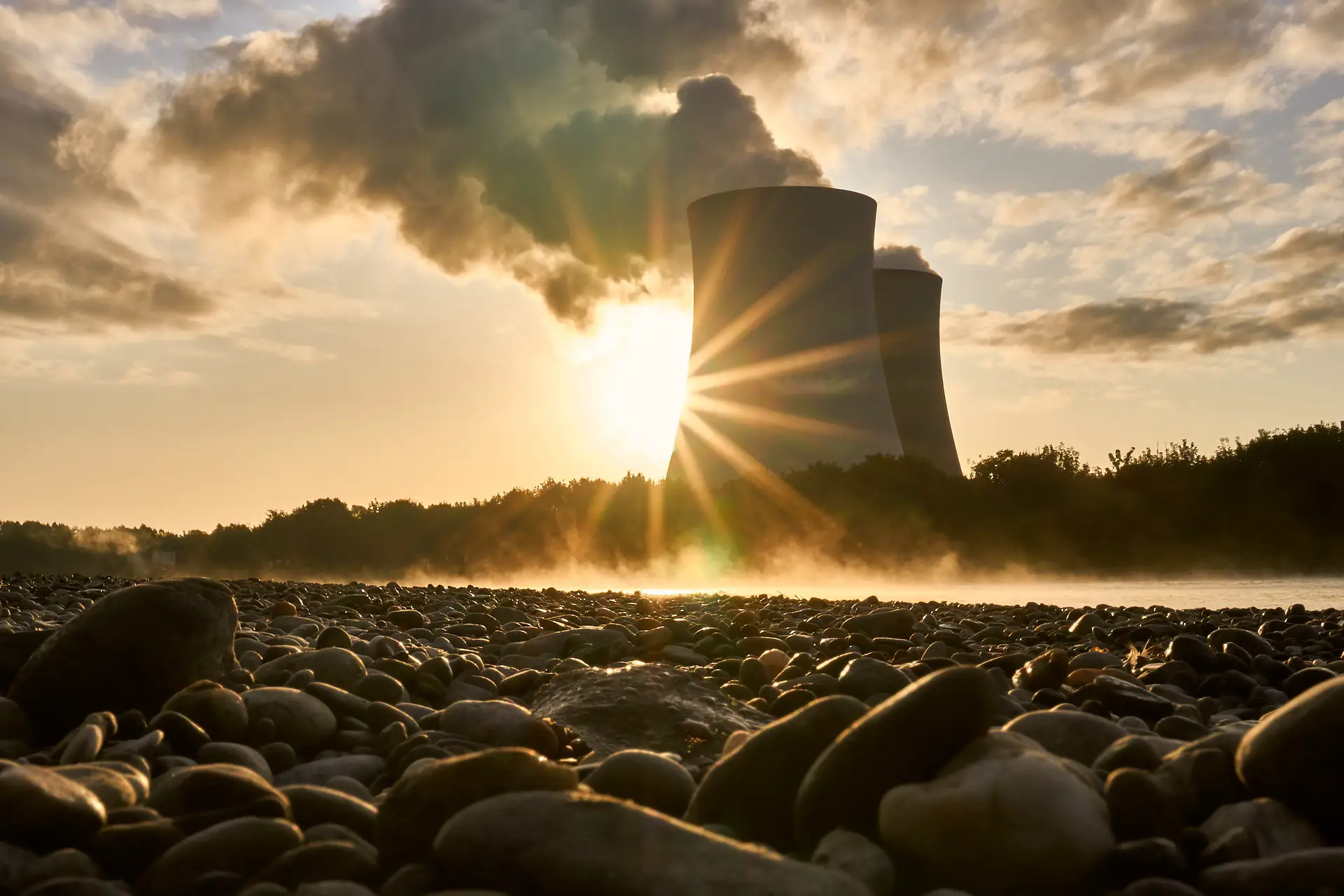
Welcome to your definitive resource for exploring the fascinating world of nuclear energy, physics, and chemistry. This website has been designed to provide complete access to the understanding of atomic energy and how it is intertwined with the fundamental laws of physics and chemical transformations.
Nuclear energy is a powerful and controversial energy source that has propelled humanity into an era of discovery and progress. Here, you will delve into the depths of atomic energy, unlocking its mysteries and exploring its role in generating electricity and beyond.
But we are not limited to nuclear energy; We also explore physics, revealing the secrets behind movement, electricity, and the cosmos, as well as chemistry, which allows us to unravel the transformations of matter.
Our goal is to provide a comprehensive perspective of how science and technology work together to shape our world. Join us on this exciting journey to the heart of science and energy. Welcome to our website!
What is the nuclear energy?
Nuclear energy is a form of energy that is released from nuclear reactions, where the nuclei of atoms break down or fuse. These reactions release a significant amount of energy in the form of heat and radiation.
Nuclear energy is mainly used in the generation of electricity through nuclear power plants.
Although it is a powerful and efficient energy source, it also comes with challenges related to safety and nuclear waste management.
In this section, you will find dozens of articles that will help you introduce yourself to the general knowledge of nuclear energy.
Atoms
Atoms are the central element of nuclear reactions.
They are the basic units of matter and the fundamental structure of everything that surrounds us. They are composed of a central nucleus containing protons and neutrons, surrounded by orbiting electrons.
Atoms are the basis of chemistry and physics since their interactions and structures determine how substances behave in the world. Understanding the structure and behavior of atoms is essential to understanding the fundamental principles of science.
In this section, you will discover its structure and main properties and you will understand less how matter is formed.
Radioactivity
Radioactivity is a natural phenomenon that involves the decay of unstable atomic nuclei, releasing subatomic particles and radiation in the process. This process can be dangerous and is used in various applications, from medicine to nuclear power generation.
Radioactivity is measured in units such as the becquerel (Bq) and the sievert (Sv), and their understanding is essential to ensure safety in nuclear and medical environments.
In this section, you will find articles that will serve as an introduction and expand your knowledge about this concept. You will discover the types of radioactivity and the dangers they pose to health among much other information.
Nuclear power plants
Nuclear power plants are facilities that use nuclear energy to generate electricity on a large scale. They work through nuclear fission, where atomic nuclei are broken to release a large amount of energy.
Despite their advantages in terms of greenhouse gas emissions, nuclear power plants also pose challenges in terms of safety, nuclear waste management, and public perception.
In this section you will learn the basic operation of a nuclear power plant and the physical principles by which these facilities can transform the energy of an atom into electricity.
Nuclear accidents
Nuclear accidents are unexpected and unwanted events that involve the uncontrolled release of radiation and nuclear materials. These incidents can have serious consequences for human health and the environment. The best-known examples include Chernobyl and Fukushima.
Understanding these accidents is essential to prevent future nuclear disasters and improve safety at nuclear facilities.
In this section we will review the main nuclear disasters that have occurred in the world, analyzing their causes and consequences.
Uses of nuclear energy
Nuclear energy is used in various applications, from electricity generation in nuclear power plants to medicine, industry and research. In addition to providing a reliable energy source, it is also used in the production of radioisotopes for medical diagnosis and treatment, as well as in the sterilization of food and medical products.
Nuclear energy also plays an important role in scientific research and industrial applications, such as welding and carbon dating.
In this section we will explain the main applications of nuclear energy and its basic principles.
Energy
Energy is the ability to do work or produce changes. In physics, it is classified in several forms, including kinetic energy (the energy associated with motion), potential energy (stored in systems), thermal energy (heat), chemical energy (stored in chemical bonds), and nuclear energy (from nuclei atomic). The conversion and efficient use of energy are fundamental in technology and modern society.
In this section you will find valuable information to introduce you and understand what each of these different forms of energy consists of.
Physics
Physics is the science that studies the fundamental laws that govern the universe, from subatomic particles to planets and galaxies. Explore concepts such as motion, gravity, electricity and magnetism, and quantum mechanics.
Physics focuses on understanding how things work at the most fundamental level, providing the foundations for many scientific and technological disciplines.
In this section you will be introduced to the basic and fundamental concepts of physics that will help you better understand the phenomena that occur around you.
Chemistry
Chemistry is the science that focuses on the composition, structure, properties and transformations of matter. Explore how atoms and molecules interact to form chemical compounds and how these interactions affect the world around us. Chemistry is essential for understanding biological, environmental and technological processes, and plays a crucial role in fields such as medicine and industry.
In this section you will learn the basic concepts of chemistry and it will help you introduce and expand your chemical knowledge.








